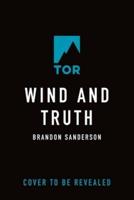Publisher's Synopsis
This historic book may have numerous typos and missing text. Purchasers can download a free scanned copy of the original book (without typos) from the publisher. Not indexed. Not illustrated. 1908 Excerpt: ... a distrust of the courts and judges. In 1808, he defended, in the Legislature, Jefferson's embargo policy, against Christopher Gore and the solid "Boston phalanx." In the same year, as chairman of a committee, he wrote an elaborate report in favor of the creation of a Court of Chancery in Massachusetts; but the prejudice in that State against equity jurisdiction was so strong that the report had no effect. The equity powers having been exercised by the old royal governors, were considered as an attribute of royalty, and a means of tyranny, and it was many years before Massachusetts consented to give full chancery jurisdiction to its Supreme Court. Visits to New York and Washington in 1807-1808, enabled Story to see something of the Bar of other States. He visited the New York Supreme Court, sitting at City Hall, and was struck by Chief Justice Kent's celerity and acuteness. "He seems to be a good lawyer and despatches business with promptness.... On the whole, if he be not a very great man, I am satisfied he is not humble in his acquirements. He has the confidence of a great lawyer in all his actions, and is self poised on his own resources," he wrote; and he referred to the Bar of New York, as "it is confessed not to be equal to what it has been. Its splendor has been obscured since Burr, Livingston, and Hamilton have departed," and he is satisfied that "Massachusetts has legal talents and juridical learning equal to any of her sisters on this side of the Delaware. What lies beyond is now but speculation." In Baltimore he met all the great lawyers, except Luther Martin. "They do not look like black lettered scholars of the Inns of Court; but are pleasant and frank in their manners, and, as I understand, well ve...
























